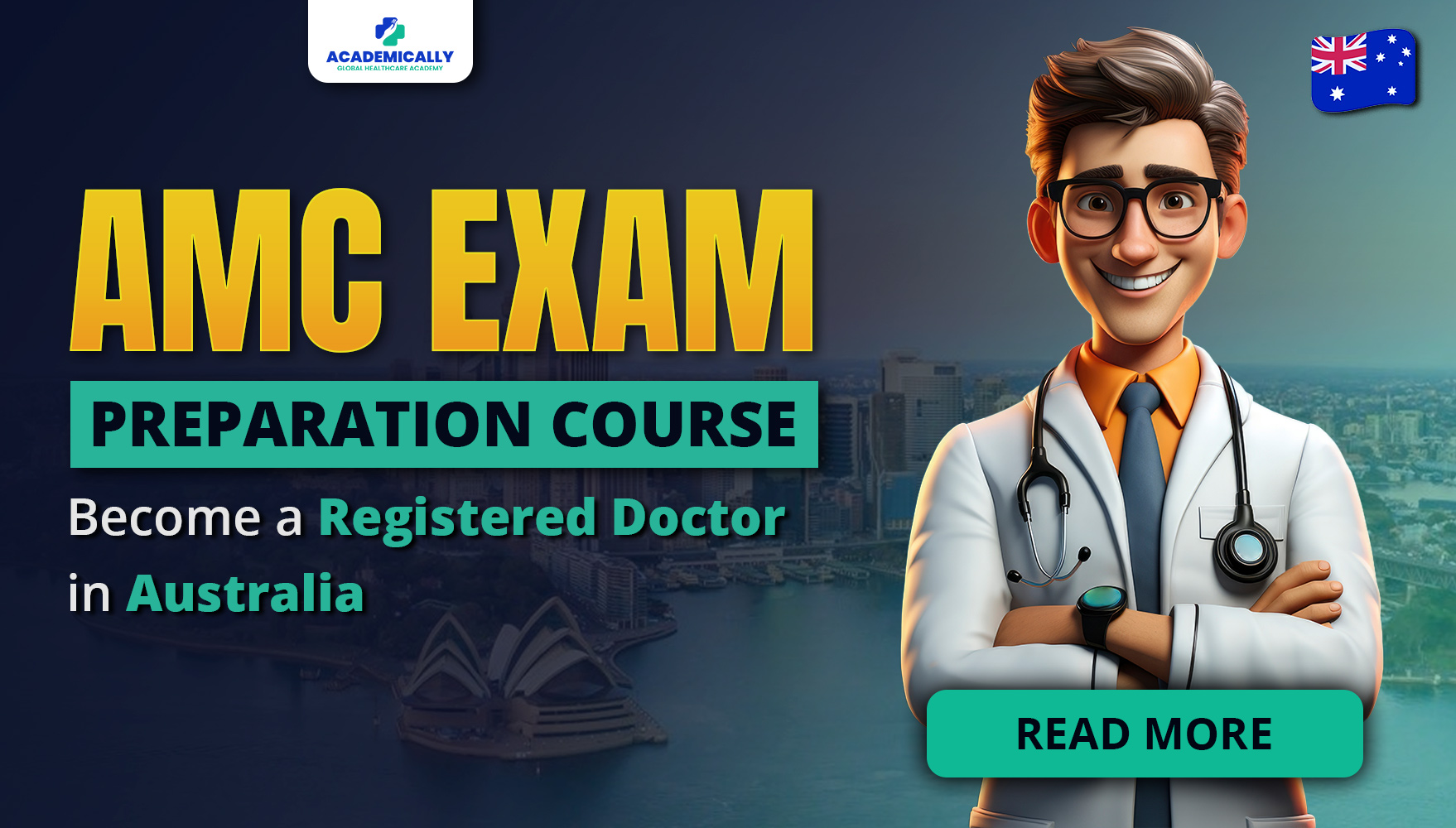Overview of Working as a Doctor in Australia
Australia offers a robust healthcare system, making it an attractive destination for medical professionals. To practise as a doctor, registration with the Australian Health Practitioner Regulation Agency (AHPRA) is mandatory. This involves thorough documentation of qualifications, work experience, and language proficiency. Australia has a diverse range of medical specialties and a high demand for skilled healthcare professionals.

Registration Pathways
Global doctors planning to practise medicine in Australia have different pathways to choose from. Let us understand each of them in detail.
1. Standard Pathway
The Standard Pathway evaluates clinical skills and knowledge through an AMC-accredited authority. There are two routes within this pathway:
- AMC exams: Primarily involving the AMC CAT MCQ Examination and the AMC Clinical Examination, this method is headed towards non-specialist applications.
- Workplace-based assessment: This is a combination of the AMC CAT MCQ Examination and workplace-based assessment conducted by an accredited authority. Currently, four states offer accredited programs for workplace-based assessments.
2. Competent Authority Pathway
Designed for IMGs seeking general registration, whether specialists or non-specialists, this pathway involves assessments by international authorities recognised by the Medical Board of Australia. Approved competent authorities include:
- General Medical Council (United Kingdom)
- Medical Council of Canada
- Educational Commission for Foreign Medical Graduates of the United States
- Medical Council of New Zealand
- Medical Council of Ireland
- National Board of Osteopathic Medical Examiners (COMLEX-USA)
3. Specialist Pathway
Tailored for specific categories, the Specialist Pathway is for:
- Overseas-trained specialists seeking recognition comparable to Australian standards.
- Overseas-trained specialists applying for positions in areas of need.
- Overseas-trained specialists or specialists-in-training desiring short-term advanced training in Australia.
- IMGs interested in this pathway should check eligibility and requirements with the relevant Australian Specialist Medical College.
The Procedure for Working as a Doctor in Australia
- Eligibility and assessment: International medical graduates (IMGs) need to assess their qualifications through the Australian Medical Council (AMC). The process involves background verification of educational qualifications and experience and assessments to ensure compatibility with Australian standards.
- English language proficiency: Sufficient English proficiency is an important aspect. IMGs may need to undertake exams like IELTS or OET.
- AHPRA registration: After successful assessments, doctors apply for registration with AHPRA, which grants them the legal right to practise in Australia.
- Specialist pathway: For those pursuing specialisation, additional training and assessments through relevant colleges are required.
Life of a Doctor in Australia
- Work environment: Doctors in Australia work in a variety of settings, including public hospitals, private practices, and research institutions.
- Work-life balance: Australia emphasises work-life balance, and doctors usually have reasonable working hours. The country's lifestyle encourages outdoor activities and recreation.
- Continuing professional development: Doctors are expected to engage in ongoing learning and continued professional development to stay updated with medical advancements.
- Cultural diversity: Australia's multicultural society contributes to a diverse patient population, offering doctors exposure to various medical cases.
AMC Examinations
The AMC examinations play a pivotal role in the assessment process. These exams gauge the level of medical knowledge, clinical skills, and attitudes expected from newly qualified graduates of Australian medical schools. The examinations consist of:
- AMC CAT MCQ Examination: A computer adaptive test (CAT) that evaluates knowledge in general practice, internal medicine, paediatrics, psychiatry, surgery, obstetrics, and gynaecology.
- AMC Clinical Examination: Assesses clinical skills in various medical fields and evaluates the ability to communicate effectively with patients, their families, and other healthcare professionals.
- AMC Workplace-Based Assessment (WBA): Available after passing the AMC CAT MCQ Examination and obtaining registration from the Medical Board of Australia. The WBA assesses clinical skills in a workplace setting.
Application Process
To begin the journey towards practising medicine in Australia, IMGs must follow a structured application process.
Primary source verification: All IMGs must apply for the primary source verification of their medical qualifications through the Educational Commission for Foreign Medical Graduates (ECFMG) Electronic Portfolio of International Credentials (EPIC).
Choose a pathway: Select the most appropriate pathway based on qualifications and training.
AMC examinations: Prepare for and undertake the necessary AMC examinations based on the chosen pathway.
Workplace-based assessment (if preferred): Complete workplace-based assessments if pursuing the Standard Pathway with this additional component.
Apply for registration: Once all assessments are successfully completed, apply for registration with the Medical Board of Australia.
Begin Practising: Upon receiving registration, doctors can start their medical practice in Australia.
Benefits of Becoming a Doctor in Australia
High-quality healthcare system: Australia's healthcare system is world-renowned, providing doctors with access to state-of-the-art facilities and cutting-edge medical technology.
Competitive salaries: Doctors in Australia receive competitive salaries, with variations based on experience, specialisation, and location.
Quality of life: Australia consistently ranks high in global quality of life indices, offering a safe and pleasant environment for doctors and their families.
Research opportunities: The country encourages medical research, providing doctors with opportunities to contribute to advancements in their field.
For IMGs looking to enhance their chances of success, Academically offers the best AMC preparation course that will help them navigate through the rigorous assessment processes. The course covers everything from the initial documentation to a smooth migration.
In conclusion, the journey of working as a doctor in Australia involves a systematic approach, ensuring that international medical professionals meet the high standards set by the Australian healthcare system. With commitment and dedication, doctors can contribute to the health and well-being of the Australian population while embracing the unique opportunities the country has to offer.
Fill up this form for a free one on one counselling session.